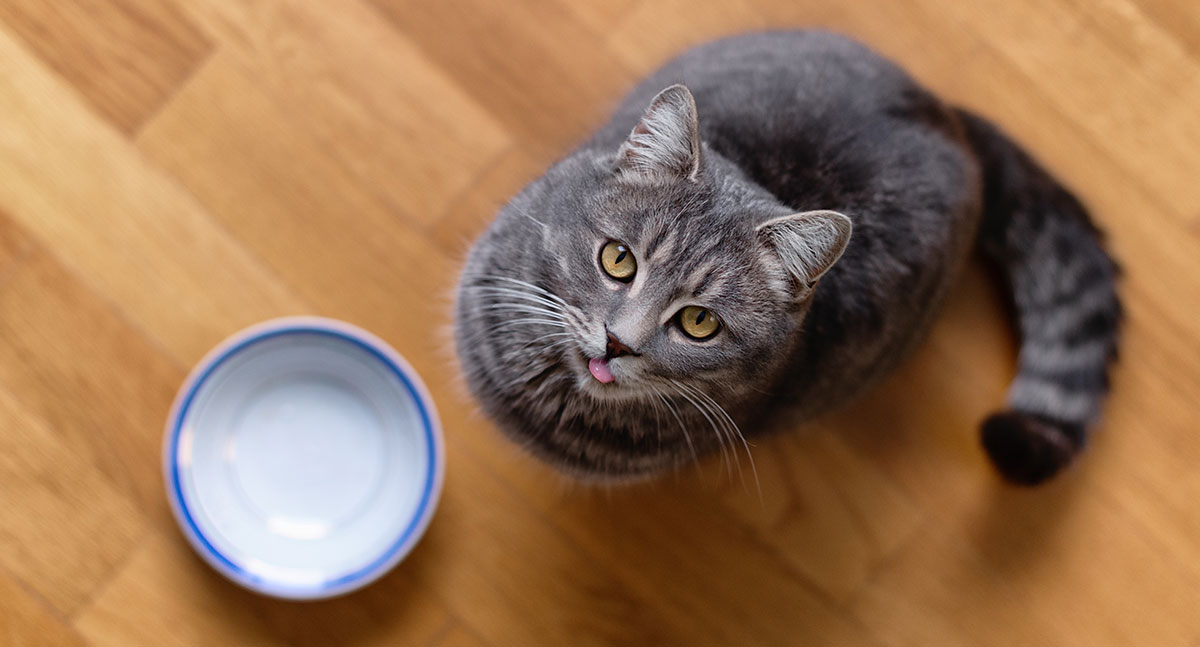
Does your cat persistently plead for food whenever you venture into the kitchen? While the most noticeable issue with a cat’s begging might seem to be the nuisance it causes to you, continuously giving in to these demands can have more serious implications. If you’re regularly handing out treats each time your cat begs, you could be inadvertently fostering a detrimental behavior and contributing to a potential weight problem.
Rewarding begging with treats essentially reinforces this behavior, making it likely that your cat will continue to beg whenever they want food. This can set up an unhealthy cycle of overeating and inactivity, which can easily lead to obesity. Just like humans, cats can face numerous health problems when they become overweight, such as diabetes, heart disease, arthritis, and a decreased lifespan.
Being overweight can significantly diminish a cat’s quality of life, leading to less playtime and more lethargy. It can make everyday activities, like climbing stairs or jumping onto their favorite perch, increasingly difficult. It also places additional stress on their joints, which can exacerbate problems in older cats or those predisposed to joint issues.
Therefore, while it might seem difficult to resist your feline friend’s pleas, it’s important to maintain their healthy feeding routine and resist the temptation to overindulge them with treats. Instead, consider rewarding good behavior with non-food related praise, such as affection or playtime, to avoid reinforcing a begging habit. By managing their diet and ensuring they get regular exercise, you can help your cat maintain a healthy weight and ultimately lead a happier, healthier life.
Stick to a Feeding Schedule
Adhering to a consistent feeding routine can play a crucial role in managing your cat’s eating habits and overall health. By being meticulous about both the quantity of cat food you offer and the timing of your kitty’s meals, you can significantly diminish the likelihood of persistent begging or scavenging throughout the day.
A stable feeding schedule offers a sense of predictability, helping your cat understand when it’s time to eat and when it’s not. This routine can be tailored to suit your daily schedule. Perhaps you choose to feed your cat when you return home from work, or maybe it’s more convenient first thing in the morning or late in the evening. Regardless of the chosen time, consistency is key. By sticking to a specific feeding routine, whether it’s morning, noon, or night, you’re teaching your cat when to expect meals, which can help reduce unnecessary begging.
Remember, cats are creatures of habit. They thrive on predictability and routine. Ensuring they have a consistent feeding schedule not only aids in maintaining their physical health but also contributes to their emotional well-being. Having a set mealtime each day can reduce anxiety around food and provide your feline friend with a sense of security, knowing that their nutritional needs will be met regularly. By implementing and sticking to such a routine, you’ll be contributing to your cat’s overall health and contentment.
No Paws on the Table
Feeding your cat table scraps while you’re eating is a surefire way to egg on her begging night after night. Your cat will come to expect your hand to slip her a treat as soon as you sit down to eat. Feed Fluffy cat food and only cat food, and you won’t find a kitty next to your casserole dish at the dinner table.
